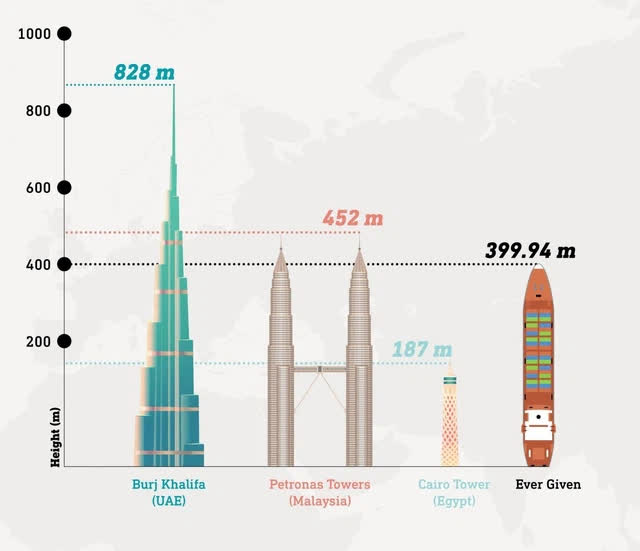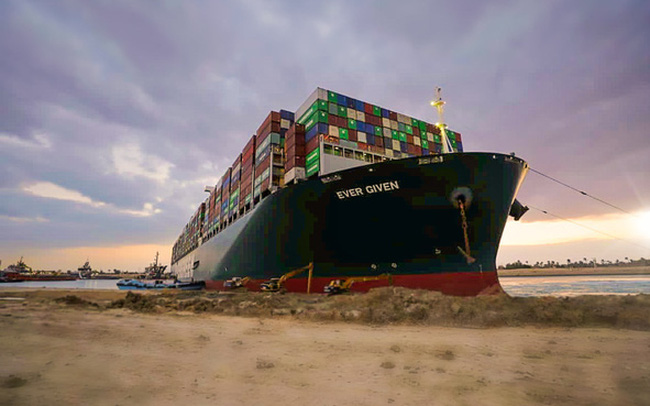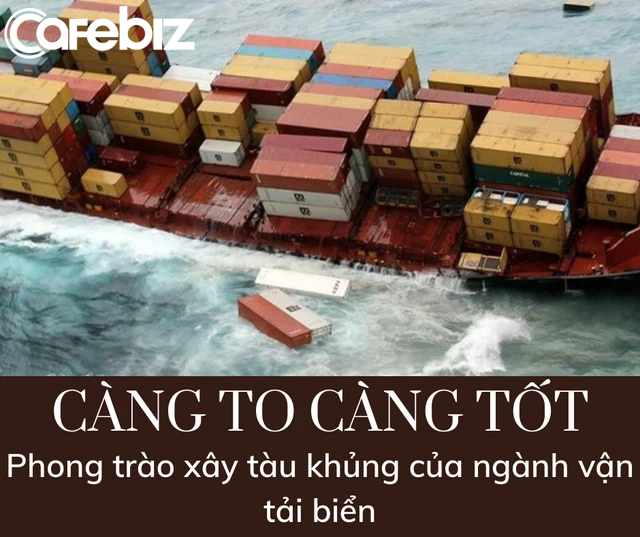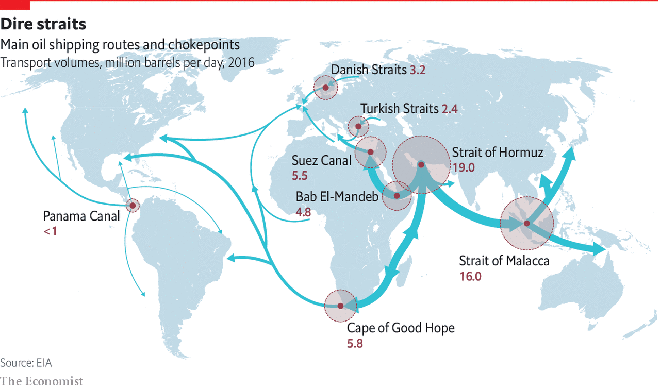Economic theory in EverGiven’s crash into the Suez Canal: The irrationality of the ‘supermassive’ cargo ships
- Tram Ho
Shoei Kisen of Japan, owner of EverGiven cargo ship operated by EverGreen representative, apologized to the world for the congestion incident at Suez Canal.
But economically, this mistake is not exactly Kisen’s. Even if the blame was solely on EverGiven, EverGreen and Shoei Kisen, there will be more and more similar incidents.
So what is the real cause of accidents like EverGiven?
As big as possible
For the shipping industry, building bigger and bigger cargo ships is an inevitable trend. In fact, technology development has made the tonnage of these ships bigger and bigger.
Between 1955-1975, the average tonnage of container ships increased 100% and continued to increase by 100% in every two decades that followed. The main reason is that all shipping companies believe that the trend of globalization is unstoppable and cargo ships need to scale up to increase profits.

Size comparison of EverGiven ships
This is completely understandable in economic theory when businesses try to increase their profit margins. Obviously large vessels carrying more cargo will have better margins than conventional cargo boats.
Another factor driving big shipping companies is the price of oil. Before 2016, oil prices were too high, making the use of large ships much more cost-effective than small ships. The race to build big ships has resulted in a time when 18% of the world’s container ships had to stay idle at sea because no one hired them.
The economies of scale, also known as incremental profitability, are revealed when long-term average costs decrease with increasing output.
Yet a study by the Organization for Economic Development Cooperation (OECD) shows that the economies of scale of super-tonnage ships are now 4-6 times smaller than in the period. previous paragraph. Currently about 60% of the economic advantage of the size of the cargo ships comes from engine technology rather than payload.
In other words, it is more profitable to build small ships with good engines than super ships. But neither company cares. Introducing a trucking company with a large fleet of ships still attracts more customers than small-sized cargo boats even with the use of high technology.

Fatty prey for pirates
Super-tonnage ships today are very expensive, up to $ 200 million and if you include the shipping containers, a train can be worth up to $ 1 billion.
This is an attractive bait for many groups of pirates or terrorists, thereby costing the company a lot of money to hire experienced employees and pay high premiums if they want them to work.
Moreover, these super-tonnage ships can only be anchored in large international ports, causing inconvenience and cost in the transportation process.
At these ports, employees who need larger equipment to transport containers, such as bridges or suspension bridges, and even container yards may have to rearrange to unload cargo from “beasts”. this. As a result, shipping companies pay higher fees for mooring and unloading of super-tonnage ships.

In recent years, the super-tonnage ships have caused many traffic jams at sea as well as at seaports. The Suez Canal incident is just one example. In addition, the fact that loading and unloading workers have to work overtime to unload thousands of containers and wait for other cargo ships to increase costs, both for ports and shipping companies.
In particular, super-tonnage ships are less likely to dock at seaports than small ships due to slow travel, so many ports do not want to spend maintenance costs for specialized equipment for this type of ship.
Thus, according to economic theory, shipping companies should have reduced super-tonnage ships. However, the fear of being underestimated compared to the competitor in terms of the number of large tonnage ships and wanting to “show off” the massive super-tonnage ships to customers has made companies do the opposite.
It is forecasted that the total tonnage of the shipping industry will increase 4-5% in the coming years, mainly due to the super-tonnage ships. In 1996, the largest cargo ship could carry only 7,000 containers, and in recent years, a ship like EverGiven can carry more than 20,000 containers.
Not only that, a number of transport companies are also carrying out mergers and acquisitions to facilitate the operation of super-tonnage ships, which require huge amounts of costs.

Number of containers transported through seaports per day (million containers)
Overloaded by Covid-19 translation
Another reason why incidents like the Suez Canal will continue is that ports are now severely overloaded. The Covid-19 translation has disrupted many contracts and the demand for consumption surged again after the epidemic, making transport activities more bustling.
In fact, the maritime trade has accelerated again as oil prices are low and the global economy recovers from the 2008 crisis. In 2010, there were only about 8.4 billion tons of cargo floating at sea. This has reached 11.1 billion tons in 2019.
The excitement of the maritime industry has caused seaports to try to upgrade to catch up. In 2015, a project worth $ 8 billion was started to expand the Suez Canal. Unfortunately, the EverGiven accident site was not part of that expansion that congested trade.
In 2016, the Panama Canal also completed an expansion to accommodate the size of 79% of the world’s cargo ships, higher than 45% previously.
However, with the current speed of building ships, the seaports are gradually finding it difficult to catch up, and then there are accidents such as the Suez Canal that make it difficult for the authorities to salvage. Up to now, the EverGiven vessel has been rescued, but it is unclear whether the Suez Canal will be able to resume operation and resolve the congestion of more than 400 ships on both sides of the canal.
Source : Genk
